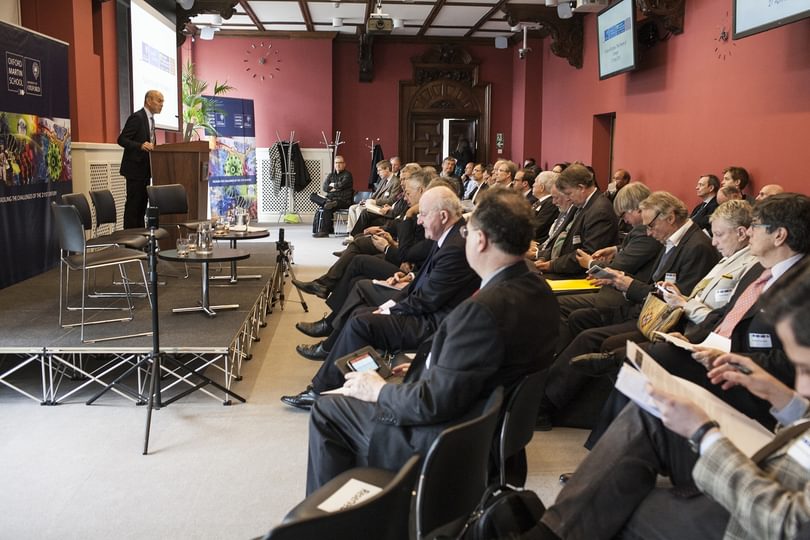
What lies ahead for Europe, and what will be the factors that determine its successes and failures in the coming decades?
Academics from around the world were joined by representatives from business, international organisations and media on 27 April for a conference at the Oxford Martin School, to discuss issues ranging from economic growth and government debt through to demographic change and innovation.
Speakers and discussants included Nobel Laureate Professor Edmund Phelps, AXA Group Head of Strategy Dr Christian Thimann, and Financial Times columnist Wolfgang Münchau.
Opening the conference, Professor Ian Goldin said a range of factors would influence Europe's long-term future, from falling fertility rates and systemic risks such as financial crises, to its diminishing standing amongst the world's most powerful regions.
"Europe can no longer tell the world what to do," he said. "New powers have risen and the world economy is much more balanced than it's ever been. The problem is that when we think about risks the past isn't a good guide. Our lifetime is unlike anything we've experienced in recent centuries."
The second part of the conference, looking at issues affecting Europe in the shorter term, took place at St Anthony's College, Oxford, the following day.
Watch videos from the conference:
- The Future of Europe, Session 1: Europe and the World towards 2020
- The Future of Europe, Session 2: Professor Edmund Phelps on Innovation in Europe
- The Future of Europe, Session 3: Capital Markets, Ageing and Pensions
- The Future of Europe, Session 4 - Roundtable Discussion
Conference report: Future of Europe: The Drivers of Change
Paper: Professor Edmund Phelps: Europe's Losses of Innovation